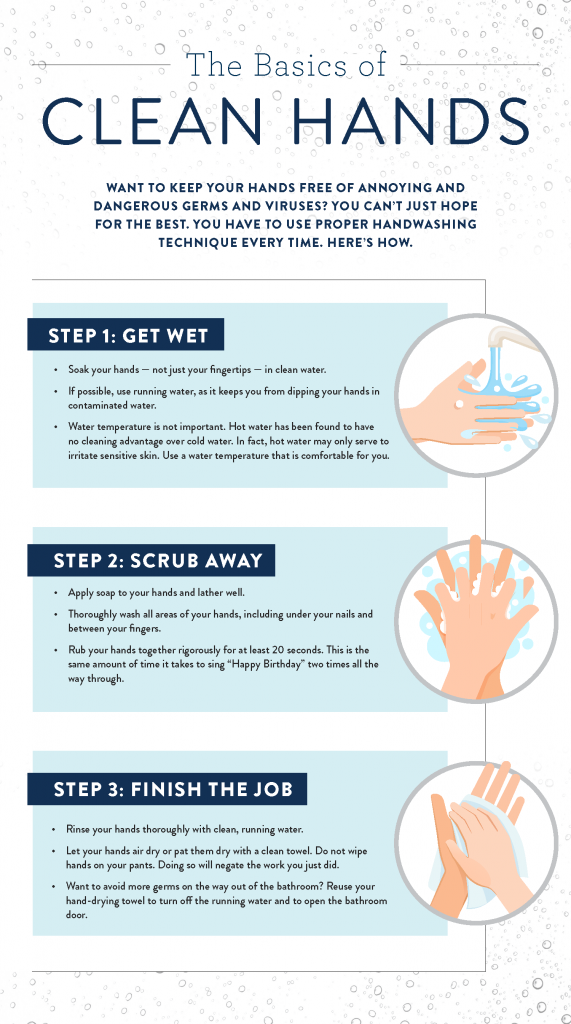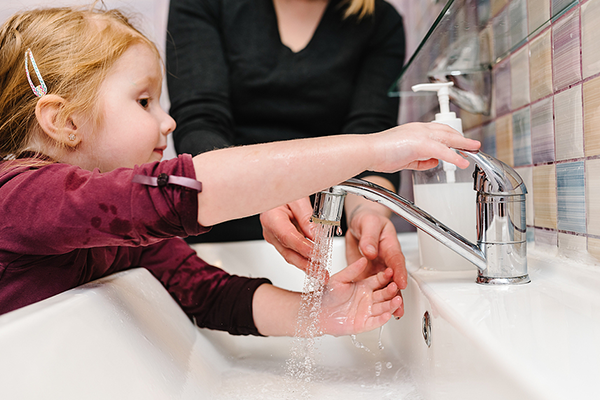How washing your hands protects your health.
You’ve been told to wash your hands to keep from getting sick and spreading germs—and you’ve done your part to keep your hands clean. But do you fully understood how soap and water work together to keep you healthy? Consider the science of handwashing.
How Germs Attack
Germs, bacteria and viruses are everywhere. They’re on doorhandles and countertops, inside bowling ball holes, on children’s toys and much more. Not washing your hands after using the restroom, changing diapers or handling garbage are a few examples of how such organisms can end up in those places. Coughing and sneezing without covering your mouth also allows bacteria and viruses to land on surfaces where they wait to invade a new host.
If you touch contaminated surfaces and then touch your mouth, eyes or nose, those harmful germs can now enter your body. Unfortunately, most people touch their face throughout the day without realizing it, which is why it’s so important to wash your hands frequently.
How Handwashing Protects Your Health
With proper handwashing techniques, you will literally wash away germs and viruses. When you scrub your hands with soap and water, the friction removes dirt, grime, germs and viruses. Be sure to use clean water when washing your hands, and dry them thoroughly when you are finished, as germs pass more easily when hands are wet.
Proper handwashing reduces your risk of catching and spreading infections, including cold and flu, diarrhea and other illnesses.
Handwashing after using the restroom is essential, but so are the following examples:
- After coughing, sneezing or blowing your nose
- After handling animals, animal food
- After taking out the garbage
- Before and after caring for an ill person
- Before caring for wounds
- Before eating meals
- Before preparing food
How Handwashing Protects Others’ Health
If you have a strong immune system and rarely get sick, you may not be overly concerned about clean hands. However, handwashing is still important because when you touch surfaces and leave behind harmful organisms, people with weaker immune systems who come into contact with those surfaces could get sick. To protect your loved ones and others, wash often and wash well.





